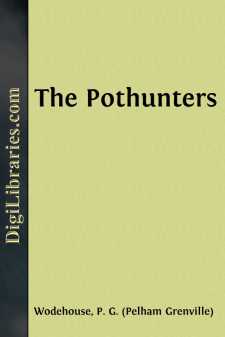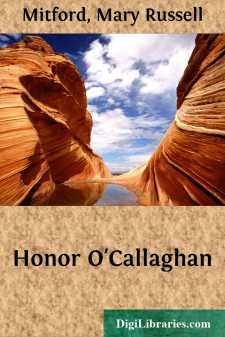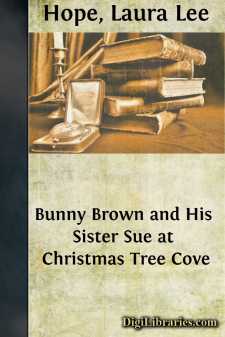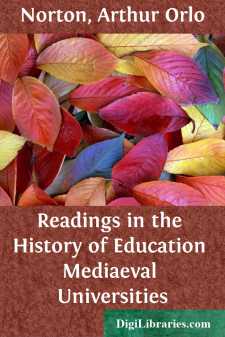Categories
- Antiques & Collectibles 13
- Architecture 36
- Art 48
- Bibles 22
- Biography & Autobiography 813
- Body, Mind & Spirit 142
- Business & Economics 28
- Children's Books 15
- Children's Fiction 12
- Computers 4
- Cooking 94
- Crafts & Hobbies 4
- Drama 346
- Education 46
- Family & Relationships 57
- Fiction 11828
- Games 19
- Gardening 17
- Health & Fitness 34
- History 1377
- House & Home 1
- Humor 147
- Juvenile Fiction 1873
- Juvenile Nonfiction 202
- Language Arts & Disciplines 88
- Law 16
- Literary Collections 686
- Literary Criticism 179
- Mathematics 13
- Medical 41
- Music 40
- Nature 179
- Non-Classifiable 1768
- Performing Arts 7
- Periodicals 1453
- Philosophy 64
- Photography 2
- Poetry 896
- Political Science 203
- Psychology 42
- Reference 154
- Religion 513
- Science 126
- Self-Help 84
- Social Science 81
- Sports & Recreation 34
- Study Aids 3
- Technology & Engineering 59
- Transportation 23
- Travel 463
- True Crime 29
Sort by:
by:
Louise Manly
PREFACE. T primary object of this book is to furnish our children with material for becoming acquainted with the development of American life and history as found in Southern writers and their works. It may serve as a reader supplementary to American history and literature, or it may be made the ground-work for serious study of Southern life and letters; and between these extremes there are varying...
more...
by:
Fredric Brown
Daptine is the secret of it. Adaptine, they called it first; then it got shortened to daptine. It let us adapt. They explained it all to us when we were ten years old; I guess they thought we were too young to understand before then, although we knew a lot of it already. They told us just after we landed on Mars. "You're home, children," the Head Teacher told us after we had gone into the...
more...
PATIENT PERSEVERANCE PRODUCES PUGILISTIC PRODIGIES 'Where have I seen that face before?' said a voice. Tony Graham looked up from his bag. 'Hullo, Allen,' he said, 'what the dickens are you up here for?' 'I was rather thinking of doing a little boxing. If you've no objection, of course.' 'But you ought to be on a bed of sickness, and that sort of thing....
more...
SIGHTS AND SCENES INOREGON, WASHINGTON AND ALASKA. Oregon is a word derived from the Spanish, and means "wild thyme," the early explorers finding that herb growing there in great profusion. So far as we have any record Oregon seems to have been first visited by white men in 1775; Captain Cook coasted down its shores in 1778. Captain Gray, commanding the ship "Columbia," of Boston,...
more...
THE WAIF WOMANA CUE—FROM A SAGA This is a tale of Iceland, the isle of stories, and of a thing that befell in the year of the coming there of Christianity. In the spring of that year a ship sailed from the South Isles to traffic, and fell becalmed inside Snowfellness. The winds had speeded her; she was the first comer of the year; and the fishers drew alongside to hear the news of the south, and...
more...
Times are altered since Gray spoke of the young Etonians as a set of dirty boys playing at cricket. There are no such things as boys to be met with now, either at Eton or elsewhere; they are all men from ten years old upwards. Dirt also hath vanished bodily, to be replaced by finery. An aristocratic spirit, an aristocracy not of rank but of money, possesses the place, and an enlightened young gentleman...
more...
by:
Laura Lee Hope
CHAPTER I THE BIG DOG "Come on, Bunny, let's just have one more teeter-tauter!" cried Sue, dancing around on the grass of the yard. "Just one more!" and she raced over toward a board, put across a sawhorse, swaying up and down as though inviting children to have a seesaw. "We can't teeter-tauter any more, Sue," objected Bunny Brown. "We have to go to the store for...
more...
by:
John Hartley
Poetry. Bite Bigger. As aw hurried throo th' taan to mi wark,(Aw wur lat, for all th' whistles had gooan,)Aw happen'd to hear a remark,'At ud fotch tears throo th' heart ov a stooan—It wur raanin, an' snawin, and cowd,An' th' flagstoans wur covered wi' muck,An' th' east wind booath whistled an' howl'd,It saanded like nowt but ill...
more...
I INTRODUCTION The history of education, like all other branches of history, is based upon documents. Historical documents are, in general, "the traces which have been left by the thoughts and actions of men of former times"; the term commonly refers to the original records or sources from which our knowledge of historical facts is derived. The documents most generally used by historians are...
more...
GOVERNMENT OWNERSHIP OF RAILROADS Paternalistic control, even when entirely benevolent in intent, is generally harmful in effect. It is apt to be doubly so when, as sometimes occurs, it is punitive in intent. The history of our railroads in the last ten years is a case in point. In their early youth our railroads were allowed to grow up like spoiled, wilful, untamed children. They were given pretty...
more...











